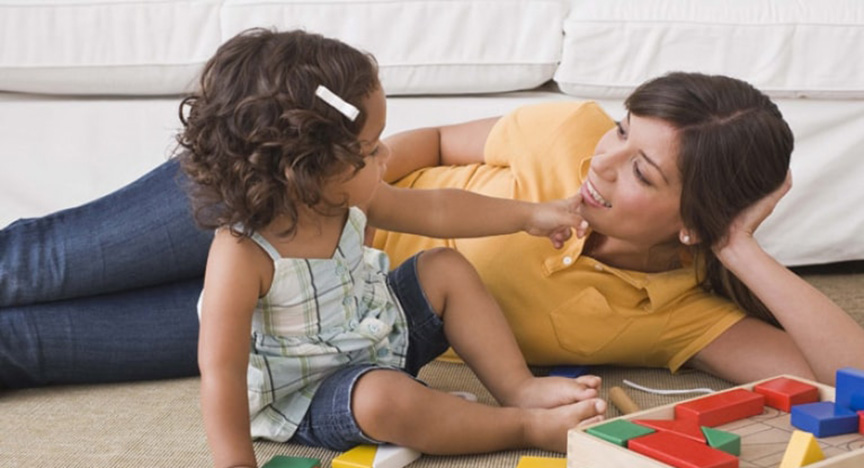
Families play a defining role in teaching, supporting and nurturing young children as they grow and develop. Children develop naturally when their parents and carers provide a supportive environment for them. The experience of joy and playfulness within our family relationships promotes and organises our children’s development and emotional well-being. However, it’s also important that as parents, we don’t put too much pressure on ourselves to be perfect.
Here’s some ideas about how we can offer a “good enough” environment for our children and look after our family’s emotional well-being.
Take the time to enjoy your relationship
As parents, we tend to focus on our children’s behaviour: how well they are eating or sleeping, or whether they are learning their colours and numbers. However, these things will develop naturally if we focus on the enjoyment of our relationship, and just delight in our children. You can turn daily activities such as a bath into playtime, or just sit on the floor with your child, comment on what they are doing and wait for them to invite you into their play.
Understand your own emotions
Understanding and thinking about our own emotions helps us interact with our children. For example, if parents hide or not think about negative feelings (e.g. sadness or anger), we can expect our children to do the same when they are sad or angry. To avoid this, we must show our children how to organise and process their feelings so they can eventually manage them on their own.
Sharing feelings
We can help our children organise their feelings by sharing their feelings (saying in an empathetic voice, “I know, you really wanted that lollipop”), naming the feelings (“You’re upset and cross”) and accepting them (saying to yourself: “Of course he’s upset, that lollipop did look delicious”).
Talk it out
Sometimes playing with your child and helping them with their feelings can be a challenge: it doesn’t always come easily. Find a friend, family member or professional who will listen to you talk honestly about the good parts and challenges of being a parent, and provide some useful help.
Parenting can be difficult at times, but with the right support, you can look after the emotional wellbeing of your young child and family.
Useful resources:
- Queensland Centre for Perinatal and Infant Mental Health
- Parentline or Tel: 1300 30 1300 (8am – 10pm daily)
- Zero to Three
- Kids Count
- Raising Children Network
References: Winnicott, d. (1965), The Maturational Processes and the Facilitating Environment: Studies in the Theory of Emotional Development. International Universities Press.,
Circle of Security, 2002.